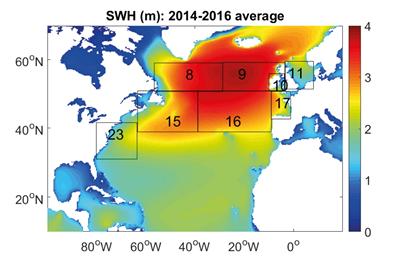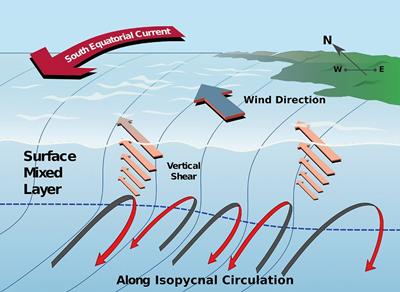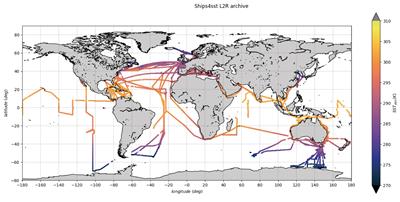Background:
Ocean observing systems and models are providing datasets of increasing quality and quantity that we can analyse in a wide range of applications, spanning environmental challenges and opportunities. Subject to increasing anthropogenic pressures, and sometimes changing unexpectedly, the marine system is best understood through innovative development of systems and use of the datasets. Ocean observations are increasingly obtained autonomously, from drifting floats or instrumented animals, fixed moorings, and orbiting satellites. In the Physical Oceanography Group, we refine monitoring systems, and innovate with data in wide range of applications, to support safer use and sustainable development of the marine environment.

Key Questions:
1. How well can we observe the ocean from space? – what do satellite sensors actually measure and how accurately, and how well sampled are short space and time scales?
2. How is life adapted to the physical marine environment? – what influence do ocean currents exert on the life history of selected species?
3. What can engineers learn from oceanographic data? - how are ships and offshore structures impacted by the combined forces of waves and currents?
4. What ocean data and tools are needed for sustainable development? – how can we work with small island and coastal states to adapt to environmental challenges while developing new opportunities in the blue economy?

How do we do it?
In the Physical Oceanography Group, we develop capability to monitor the marine environment, both remotely and in situ, including building novel instrumentation. We build innovative computer models to simulate and predict processes that are key drivers of environmental variability and change. Combining observations and data, we use a variety of bespoke calculations to address specific challenges and opportunities.
Through these activities, we are contributing to the UN Decade of Ocean Science for Sustainable Development (2021-30), such as a new interdisciplinary project to understand and predict the “Great Sargassum Belt” that now stretches across the tropical Atlantic. Working with colleagues in the developing world, we are contributing to the informed decision-making that must underpin sustainable use of the global marine environment.

Figure 1. The Physical Oceanography Group works in partnership with industry on applications of oceanographic data to inform offshore engineers and classification societies. For example, we evaluate the accumulated wave loads acting on ships that ply Europe-US shipping routes, using forecast significant wave height (SWH) data over 2014-2016, provided by the Met Office. Image by Nikolaos Skliris, from the NERC Innovation Project “Safer Operations at Sea - Supported by Operational Simulations (SOS-SOS)”.
Figure 2. We also undertake model simulations and data analysis to better understand highly variable oceanographic conditions that underpin biological hotspots, such as around the Galápagos Islands in the equatorial Pacific, where interplay between winds, ocean currents and complex bathymetry determines local upwelling and productivity. Image from Figure 6 in Forryan et al. (2021), Scientific Reports, 11, https://doi.org/10.1038/s41598-020-80609-2.
Figure 3. Map of the ships4sst global shipborne radiometer data set (see www.ships4sst.org).
Movie. Simulated movement of particle representing the first-year drift experience of hatchlings emerging from 42 turtle nesting sites worldwide (from Scott et al. 2014; Ecology).
Who in the Physical Oceanography Group is involved?
Prof Robert Marsh; Dr Nikolaos Skliris; Dr Werenfrid Wimmer; Dr Alexander Forryan; Prof Alberto Naveira Garabato.